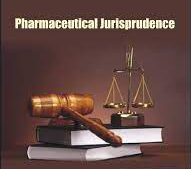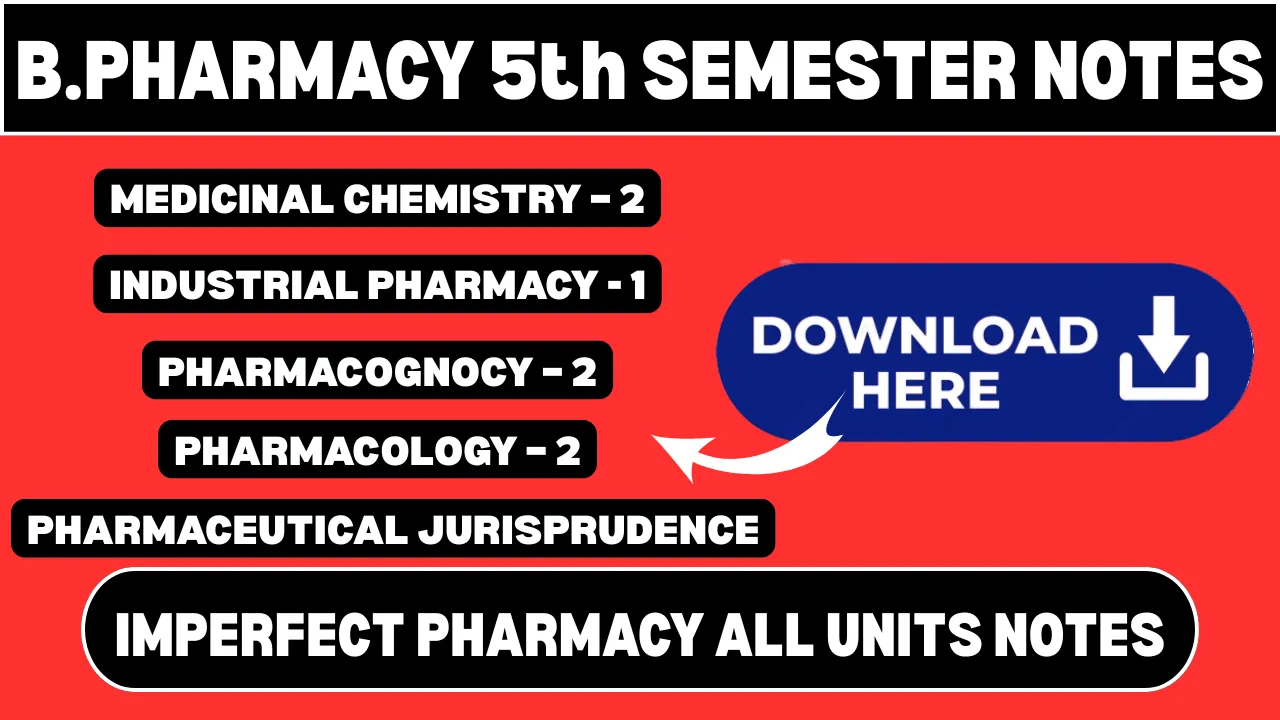B. Pharmacy 5th Semester Imperfect Pharmacy Handwritten Notes
MEDICINAL CHEMISTRY – 2

Medicinal Chemistry II: A Brief Overview
Medicinal Chemistry II dives deeper into the relationship between a drug’s chemical structure and its biological effects.
Structure-Activity Relationships (SAR): How changing a drug’s structure alters its potency, side effects, and overall effectiveness.
Drug Design: The process of creating new medications, from finding targets to chemical synthesis and testing.
Drug Metabolism: How the body processes medications, influencing their duration and potential interactions.
Specific Drug Classes: Detailed investigation of how categories of drugs work, their uses, SAR, and synthesis.
Key Objectives:
Gain a deeper understanding of drug action at the molecular level.
Learn how to design drugs with specific therapeutic goals in mind.
Develop the ability to critically evaluate medications.
Understand the complexities of bringing a new drug to market.
INDUSTRIAL PHARMACY – 1

Industrial Pharmacy I: A Quick Overview
Industrial Pharmacy I teaches you the fundamentals of how drugs are turned into the medicines we use.
Key Topics:
Dosage Forms: The different ways drugs are prepared (tablets, capsules, liquids, etc.) and how the form impacts the drug’s action.
Manufacturing: The processes and techniques used to produce drugs in large quantities.
Quality Control: How to ensure drugs are safe, effective, and meet strict standards.
Regulations: The laws and guidelines that govern how drugs are developed and brought to market.
PHARMACOLOGY – 2

What It Is:
Pharmacology is the science of how drugs work within the body. It covers the way the body handles drugs and how the drugs change the body’s functions. This knowledge is crucial for creating new medicines, using drugs safely, and understanding toxins.
PHARMACOGNOCY – 2

Pharmacognosy II goes deeper into the study of drugs from natural sources (primarily plants). You’ll learn:
Biosynthesis: How plants produce valuable medicinal compounds.
Natural Product Types: Exploring classes like alkaloids, glycosides, terpenoids, and their therapeutic uses.
Extraction & Isolation: Techniques to obtain pure active ingredients from plants.
Quality Control: Methods to ensure the safety and consistency of herbal medicines.
Traditional Medicine: How systems like Ayurveda utilize natural products.
PHARMACEUTICAL JURISPRUDENCE

Pharmaceutical Jurisprudence :
This the field of law that specifically focuses on the pharmacy profession and the drug industry. It covers:
Regulations: Laws designed to ensure the safety, quality, and ethical handling of medications.
Professional Standards: Rules and guidelines for how pharmacists should practice and interact with patients.
Key Purposes:
Protect the Public: Guarantee that medicines are safe and effective.
Maintain Ethics: Ensure pharmacists act responsibly and always put patient wellbeing first.
Control the Industry: Set clear standards for how drugs are made, distributed, and promoted.

